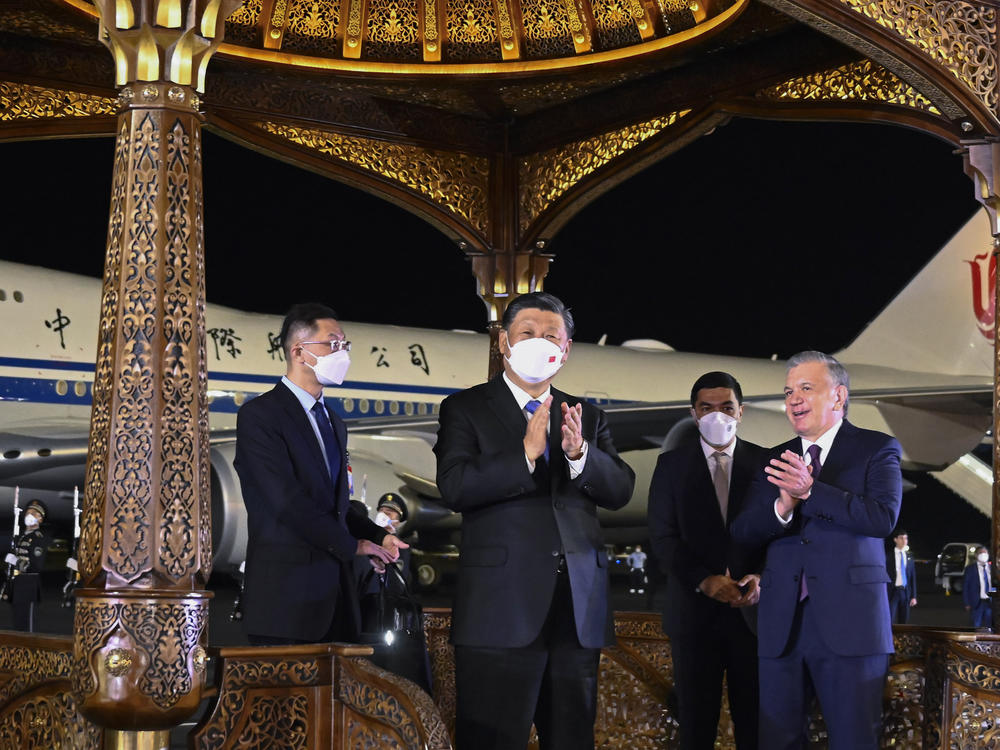Section Branding
Header Content
Xi, Putin hold summit in Uzbekistan as the Ukraine war dominates
Primary Content
BEIJING — Chinese President Xi Jinping, Russia's Vladimir Putin and leaders from India and Central Asian nations headed to Uzbekistan on Thursday for a summit of a security group formed by Beijing and Moscow as a counterweight to U.S. influence.
The meeting of the eight-nation Shanghai Cooperation Organization comes at a time when Putin is isolated abroad following his invasion of Ukraine. Beijing's relations with Washington, Europe, Japan and India are strained by disputes over technology, security and territory.
The event in the ancient sultanate of Samarkand is part of Xi's first foreign trip since the outbreak of coronavirus pandemic 2 1/2 years ago, underscoring Beijing's desire to assert itself as a regional power.
Xi was greeted at the Samarkand airport by Uzbek President Shavkat Mirziyoyev, China's official Xinhua News Agency reported. Musicians played a fanfare on karnays, a traditional wind instrument that resembles a long trumpet.
Putin and Xi were due to meet one-on-one and discuss Ukraine, according to the Russian president's foreign affairs adviser.
Indian Prime Minister Narendra Modi was due to arrive Thursday, according to his government, though there was no indication whether he might meet separately with Xi or Putin.
Chinese-Indian relations are strained due to clashes between soldiers from the two sides in a dispute over a border in a remote area of the Himalayas.
Other SCO governments include Kazakhstan, Kyrgyzstan, Pakistan and Tajikistan. Observers include Iran and Afghanistan.
The Chinese leader is promoting a "Global Security Initiative" announced in April following the formation of the Quad by Washington, Japan, Australia and India in response to Beijing's more assertive foreign policy. Xi has given few details, but U.S. officials complain it echoes Russian arguments in support of Moscow's attack on Ukraine.
The region is part of China's multibillion-dollar Belt and Road Initiative to expand trade by building ports, railways and other infrastructure across an arc of dozens of countries from the South Pacific through Asia to the Middle East, Europe and Africa.
China's economic inroads into Central Asia have fueled unease in Russia, which sees the region as its sphere of influence. Kazakhstan and its neighbors are trying to attract Chinese investment without upsetting Moscow.
Xi made a one-day visit Wednesday to Kazakhstan en route to Uzbekistan.
Pope Francis was in Kazakhstan at the same time as Xi, but they didn't meet.
Copyright 2022 NPR. To see more, visit https://www.npr.org.

